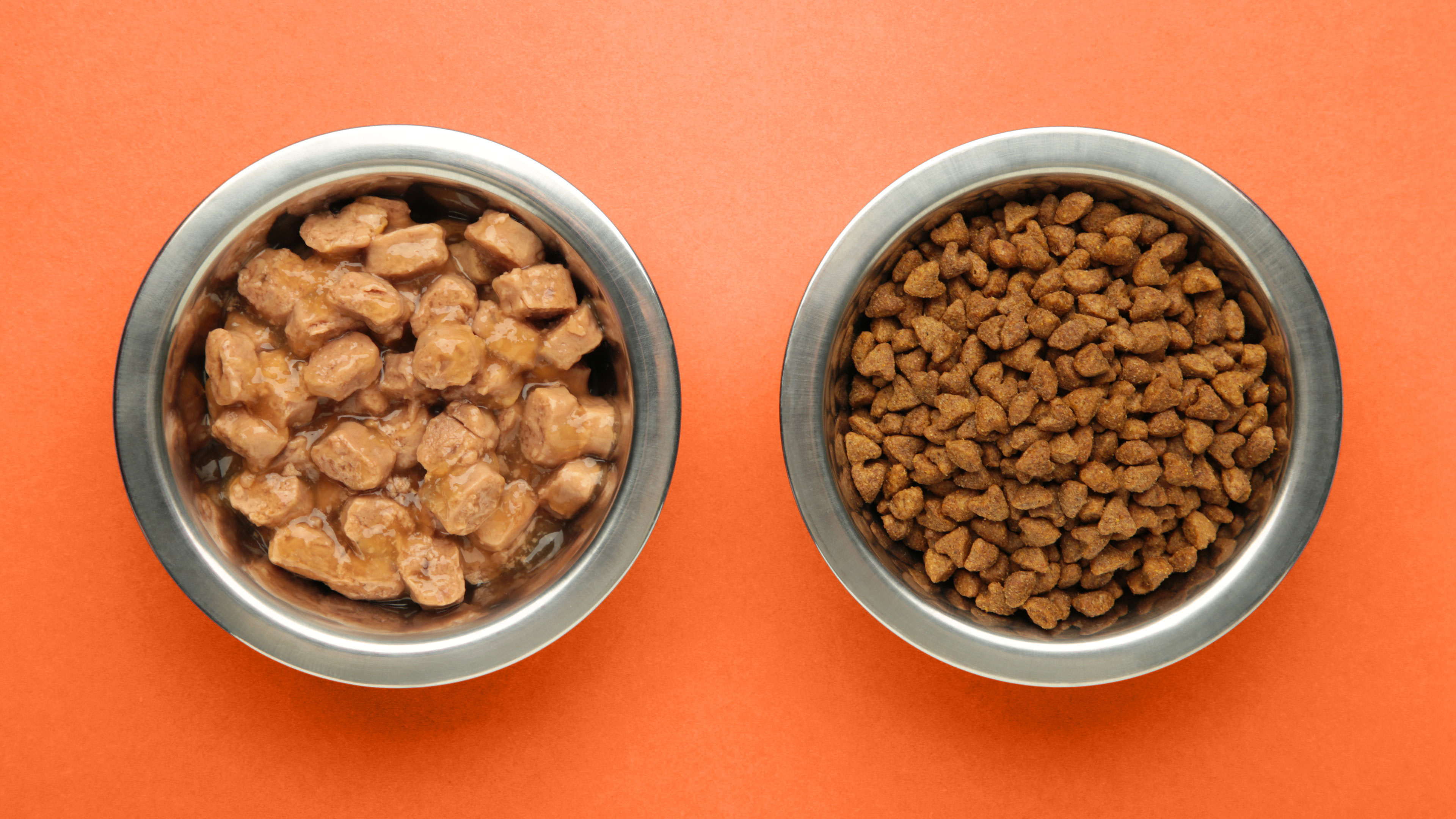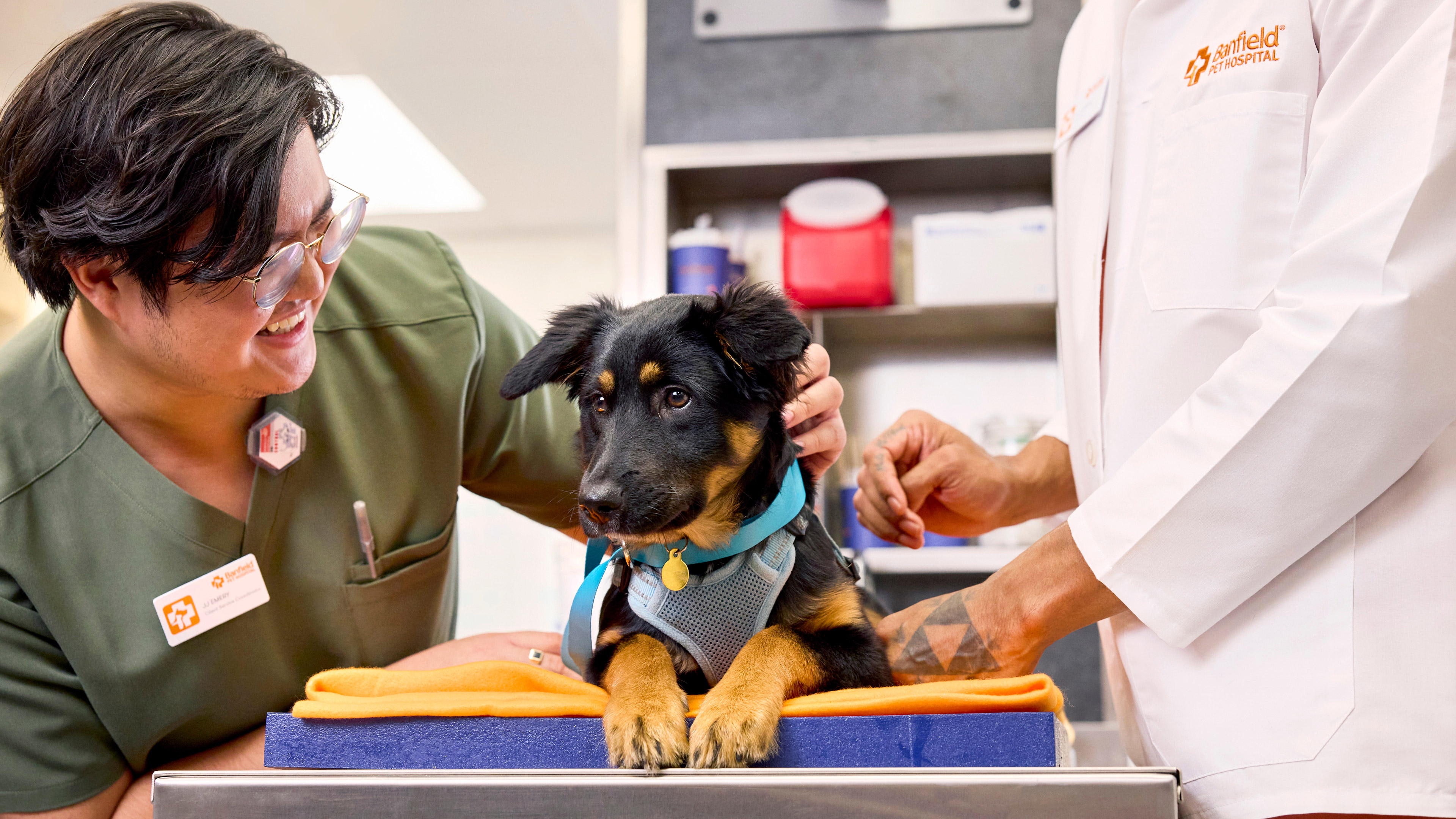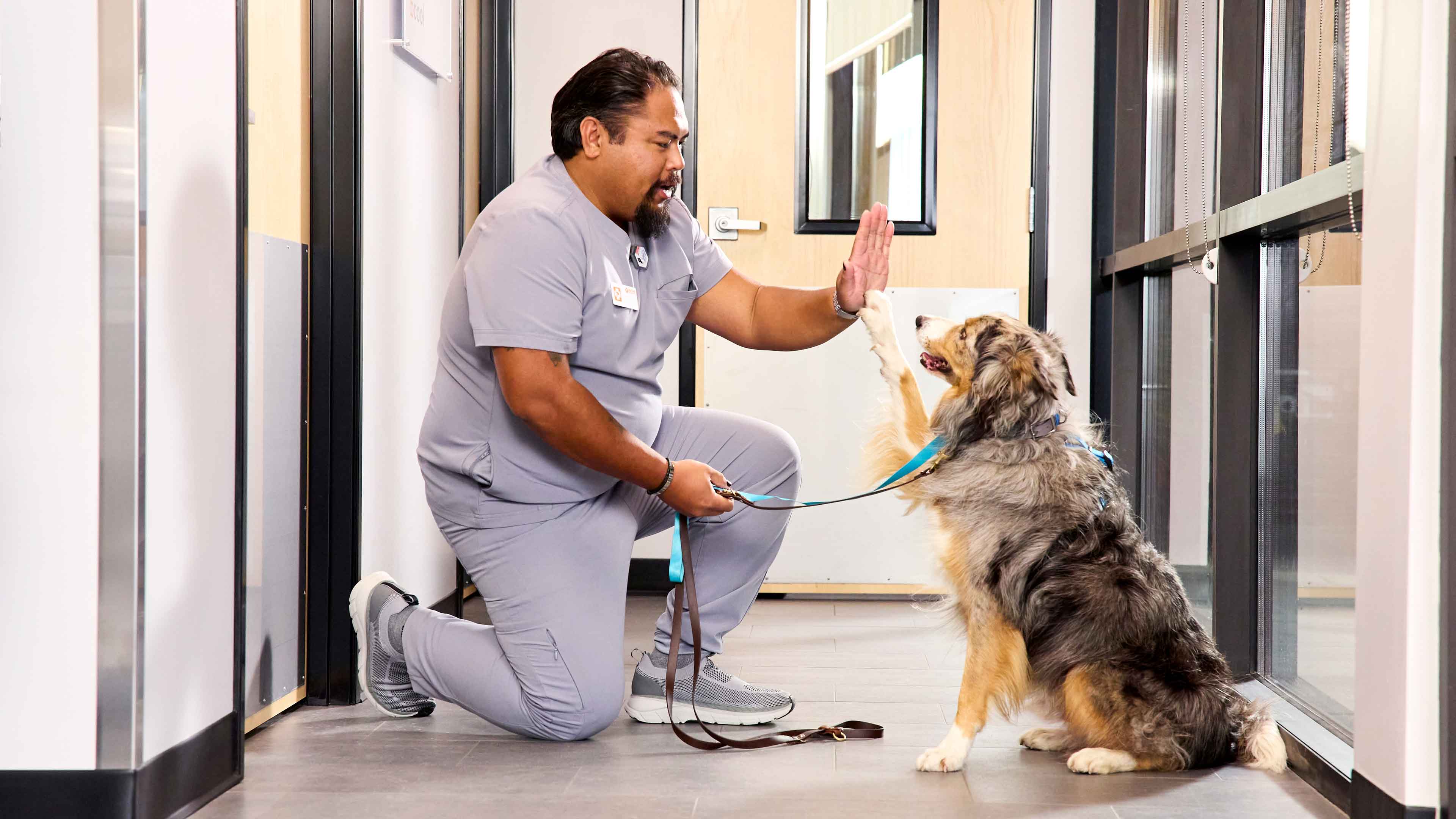7 common symptoms of canine influenza
Canine influenza, otherwise known as dog flu, is a common (and contagious) respiratory illness that is easily transmissible between dogs. It has two strains, H3N8 and H3N2, neither of which is transmissible to humans. However, like human flu, the prognosis can range from mild to severe, so it’s essential to help keep your dog protected from this contagious disease.
Where can dogs catch dog flu?
Dog influenza can spread through a variety of ways, including coughing, sneezing, barking, licking another dog, or nuzzling another dog, as well as through contaminated objects like water bowls. That makes social settings such as dog parks, grooming facilities, doggy daycares, and kennels common places for a pup to contract dog flu.
7 common symptoms of dog flu
The most common symptoms you’ll see your dog exhibiting are:
- Persistent coughing
- Sneezing
- Lethargy
- Fever as high as 105°
- Thick nasal discharge
- Runny eyes
- Reduced appetite
Canine influenza prognosis for dogs
The majority of dogs that contract canine influenza will experience a mild illness and recover within a couple of weeks. However, if you suspect your dog has contracted the illness, we recommend consulting your veterinarian to discuss next steps. In rare instances, dog flu can progress to a more severe bacterial pneumonia, which can lead to hospitalization and, in some cases, death.
If your dog is doing well, your veterinarian will likely recommend rest and fluids. However, if there are further concerns about your pet’s health, your vet may recommend diagnostic testing to see if additional treatment is required.
If your dog is sick with dog flu, please keep them separate from other dogs until they are healthy again to help prevent the spread of the disease within your community.
Should my dog get the dog flu vaccine?
At Banfield, we offer the canine influenza vaccine as part of our non-core vaccines. It is worth considering for dogs that frequent dog parks or doggie daycares or spend a lot of time outside. It is initially administered as a two-shot series, given two to four weeks apart, followed by an annual booster shot.
It’s important to note that the vaccine doesn’t prevent infection but rather decreases the severity of the disease. So even when vaccinated, to help further prevent your dog from contracting the flu, please refrain from taking them to dog parks or boarding facilities if there are reported outbreaks in your area. If you’re not sure if there is an outbreak in your area, call your veterinarian for advice.
Can humans catch dog flu?
No, humans cannot catch dog flu. Even though dog flu and human flu share one of the same virus names (H3N2), the viruses that cause dog flu are different from the viruses that cause human flu.
For additional info on dog flu, visit our helpful page here, and for information on the canine flu vaccine, please visit our vaccines page here.
 Mites and mange
Mites and mange Podcast - Not Just Fluff
Podcast - Not Just Fluff












